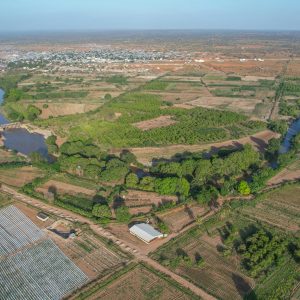Afghanistan launches initiative to preserve the legacy of its resistance fighters
New museum, archives, and library dedicated to documenting the nation’s struggle against foreign occupations
KABUL, Afghanistan (MNTV) — The Islamic Emirate has unveiled a new museum, archives, and library to document Afghanistan’s enduring history of resistance against foreign powers.
Managed by the Ministry of Information and Culture, the project is focused on preserving the sacrifices made by Afghan fighters throughout the country’s wars of independence, particularly against the Soviet Union and, more recently, the United States and its allies.
In a statement, Acting Minister of Information and Culture Mullah Khairullah Khairkhwa underscored the importance of this effort, calling the Afghan fighters national heroes and asserting that it is the Islamic Emirate’s responsibility to collect and protect their stories for future generations.
He affirmed that the people’s demand for such an initiative was clear and that it would be conducted impartially, ensuring that history is recorded accurately and without alteration.
Afghanistan has a long history of resistance. During the 19th and early 20th centuries, Afghan forces successfully repelled British invasions in the Anglo-Afghan wars. However, the Soviet invasion of the 1980s was a pivotal chapter, with Afghan fighters, known as the Mujahidin, gaining international recognition for their successful battle against the Soviet military.
Their struggle was supported by the U.S. and other countries, who saw it as a key front in the Cold War. Following the Soviet withdrawal in 1989, Afghanistan descended into civil war, eventually leading to the rise of the Taliban.
In 2001, following the September 11 attacks, the United States led a coalition to invade Afghanistan. This invasion marked the beginning of nearly two decades of conflict, with Afghan fighters once again resisting foreign occupation, this time under the banner of the Taliban.
Despite the eventual withdrawal of U.S. and NATO forces in 2021, the impact of these foreign invasions continues to shape the country’s political and cultural landscape.
Mawlavi Muhajer Farahi, Deputy Minister for Publication Affairs, added that the project would also focus on documenting the atrocities committed during Afghanistan’s various invasions by British, Soviet, and American forces.
Meanwhile, Mawlavi Atiqullah Azizi, Deputy Minister of Culture and Arts, acknowledged the unity of the resistance fighters during their struggle, though he noted that internal divisions had later emerged.
He reiterated the Islamic Emirate’s commitment to maintaining unity and preserving the heritage of those who fought for Afghanistan’s sovereignty.
This historical preservation initiative represents a critical step in documenting Afghanistan’s tumultuous past, ensuring that the contributions and sacrifices of its resistance fighters remain a central part of the national narrative.










